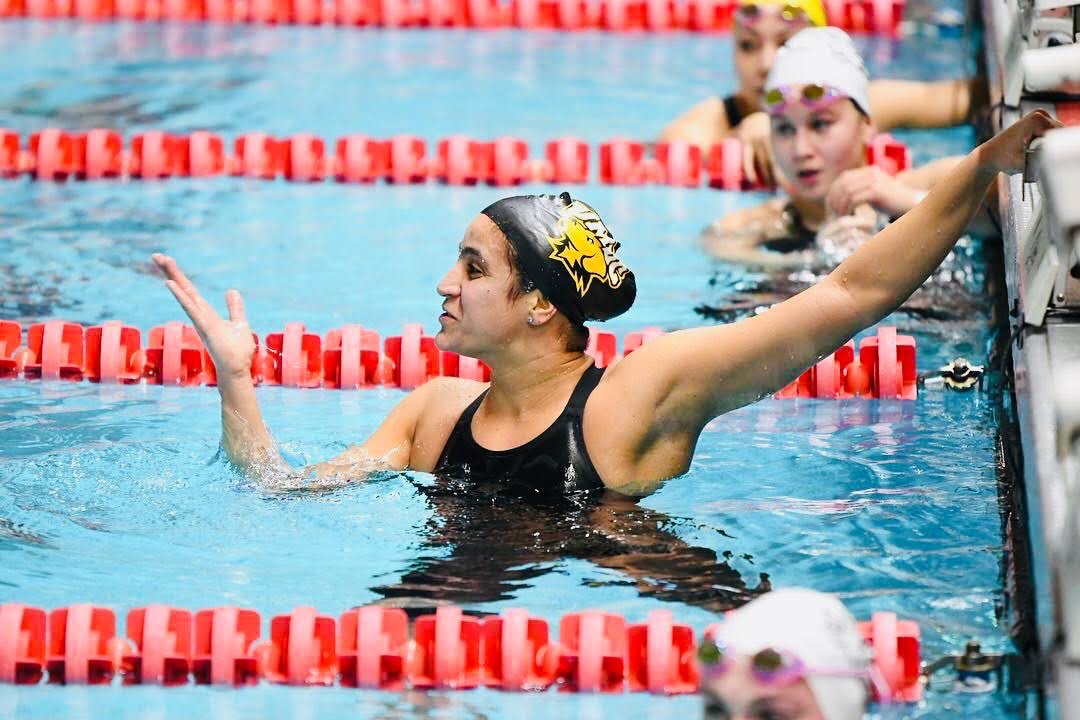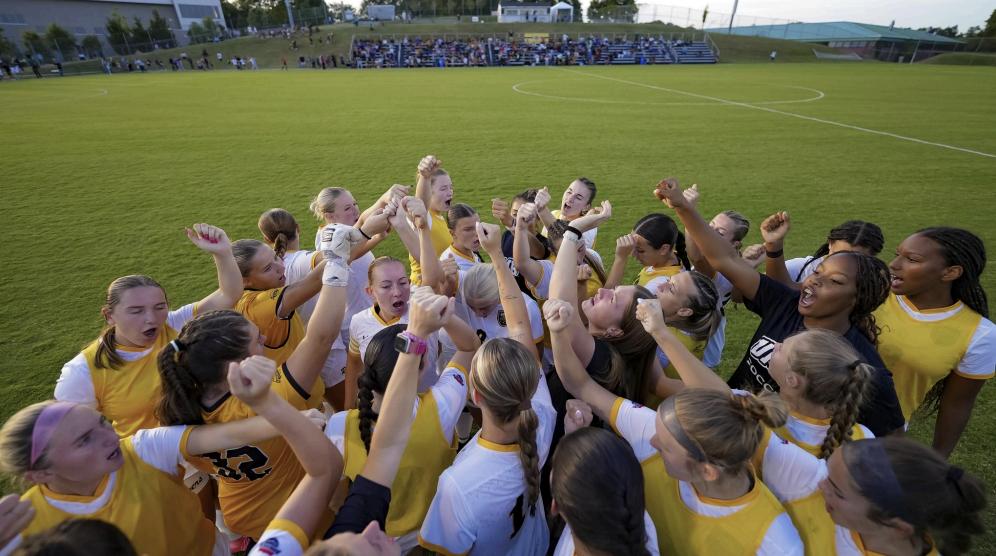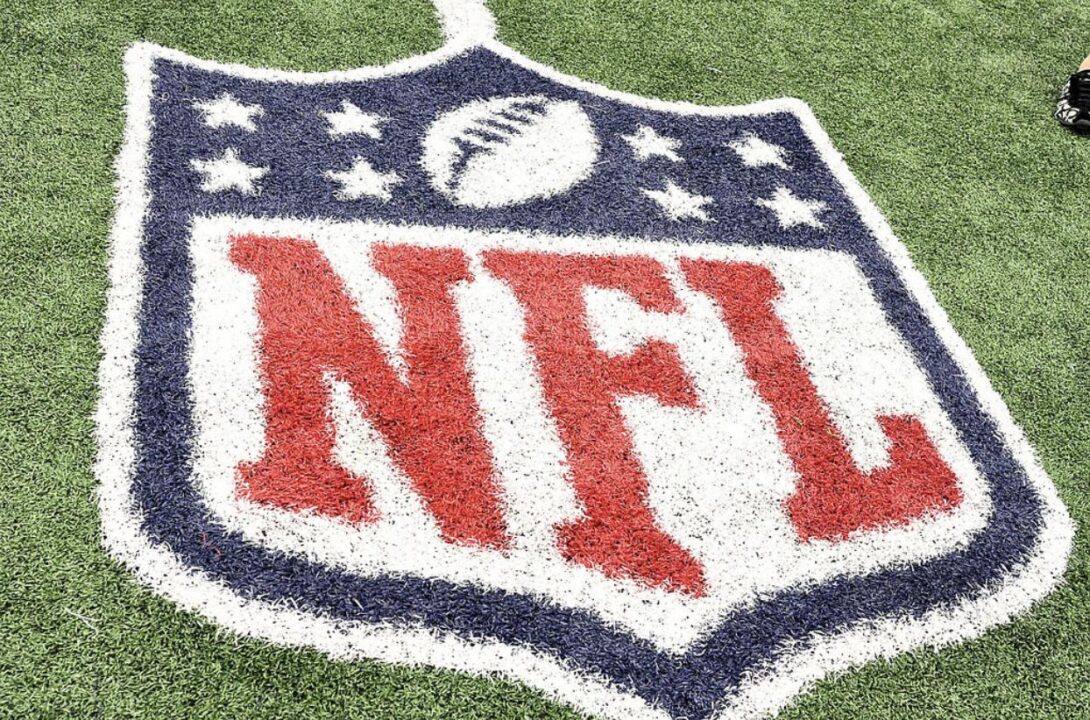Former University of Maryland, Baltimore County swimmer and hopeful Egyptian Olympic team member Hania Moro (‘19) walked into the UMBC swimming and diving coaches’ office after finishing her two-hour training in the pool. The UMBC coaching staff continued to train Moro after she graduated, preparing her for the African Championships, a meet that serves as Egypt’s Olympic Trials, set to take place April 17 to 22.
Moro’s 15-second personal record in the 1500 meter freestyle and four-second personal record in the 800 meter freestyle at the U.S. Open in Georgia, U.S.A. in Dec. suggested she would do well at the championships. However, her personal records seemed meaningless after the coaches told her the championships were canceled due to the COVID-19 outbreak.
“I started looking at them and I started bawling my eyes,” Moro said. “I was like, ‘What are you talking about? Like, there is no way. I’ve been training for this.’”
For Moro and other professional swimmers looking to qualify for the Olympics, their Olympic Trials were canceled before the International Olympic Committee (IOC) postponed the Games on March 24.
Moro stressed about being out of the pool in the weeks between the cancellation of her trials and the IOC’s announcement. Her return home to Egypt a few days before the country closed airports on March 19 only further worried her.
“I started getting nervous about not being able to train and then the Olympics are gonna be still going on,” Moro said. “And then I wouldn’t be able to go to my meets. Or go to my meets and not be ready a hundred percent because I haven’t been able to train because of the coronavirus.”
As the weeks drew on, Egypt enacted stay-at-home policies and a curfew that closed any pools Moro could use. Unable to train, Moro grew more anxious waiting for the IOC to postpone the Olympics.
Moro explained that, for a swimmer, extended time out of the pool means a drastic loss of aerobic capability. To her, one week out of the pool requires three weeks to get back into shape. Having been out of the pool for two weeks, Moro believed she could not get back in shape in time for the Olympics. She said she felt so depressed that she told her mother she was going to quit swimming.
“The only thing I could think of was my dream is literally being taken away from me and I could not do anything about it,” Moro said. “I felt completely useless.”
The postponement announcement was a huge relief for Moro. While she believes the announcement should have come much sooner for the sake of athletes’ mental health, she is glad the Olympics are postponed. She is happy to have another year to train, she said, despite it meaning another year apart from her family in Egypt.
Alexander Gliese (‘19) also appreciates another year to train. Still, he is sad to not see the results of his hard work.
“Just knowing that I didn’t really get to see where I was at, even though there was going to be that pressure with whether I was gonna qualify or not, just not even getting a chance to race was kind of really disappointing,” Gliese said.
Also training with UMBC swim and dive coaches, Gliese was going to compete at the Danish Open, Denmark’s Olympic Trials, from March 28 to April 1 to qualify for Denmark’s Olympic team. However, his qualifying meet was canceled on March 12.
Even before the trials’ cancellation, Gliese said everything in the world went crazy. On Mar. 10, UMBC stated it was closing campus and conducting online classes the two weeks after spring break. The same day the Danish Open was canceled, Maryland Governor Larry Hogan required all Maryland schools and universities to close. The following day, UMBC closed and forced Gliese to return to his home in Columbia, MD.
Since returning home, Gliese has not been in a pool. Instead, he is doing UMBC swimming and diving head coach Chad Cradock’s and UMBC Strength and Conditioning coach Brian Amenta’s bodyweight workouts. He is also running, though he says his body is not used to the impact.
With this new, less intense training regimen, Gliese is worried about his diet and his body weight. For Gliese, finding the balance between restricting himself and eating enough is difficult.
“I can feel that change in my body that I’m not giving it enough calories,” Gliese said. “So, it’s kind of trying to find that balance of giving myself enough calories to feel energized and also not eating too much so I don’t start to gain a bunch of weight.”
Gliese is also worried about the financial burden of another year of training. Gliese is not a sponsored professional swimmer, meaning that he does not get reimbursed for the cost of entering in and traveling to meets or for any equipment. While he said supporting himself for a single year was not a big deal, a second year will be difficult.
While Gliese has to support himself, other athletes, like Emily Escobedo, who graduated in 2017, receives a stipend from U.S.A. Swimming for having one of the top 12 world times in any given event, after placing sixth in the nation in the 200 meter breaststroke. However, this stipend only covers the cost of meets, gear and any other athletic needs, so it does not provide for Escobedo’s living expenses. Escobedo’s other source of income would be placing in her events of the 100 meter and 200 meter breaststroke at big meets, but without these meets, Escobedo cannot earn money.
Despite her lack of income, Escobedo is more concerned for those struggling to support their families and people on the front lines of the pandemic. She is especially concerned about her mother, a nurse at Memorial Sloan Kettering Cancer Center in New York City, NY, and her father, a firefighter in New Rochelle, NY. Since her mother contracted the coronavirus, Escobedo is nervous her father will get infected while working.
These worries have not slowed her training. Escobedo considers herself lucky since she has access to infinity pools, small pools with a current that allows Escobedo to swim in place, at SwimLabs. She continues to swim there, though she says it feels weird compared to her altitude training at the Olympic Training Center in Colorado.
While her training and the pandemic have stressed her out in many ways, Escobedo says the only option in this pandemic is to take things day by day.
“I think all we need to do is stay in shape and keep our mental health in a good place and I think we’ll be fine,” Escobedo said. “We’ll make it back to the pool because everyone’s in the same situation.”
Cradock echoed Escobedo’s belief in taking things as they come. Cradock has been helping Gliese and Moro through this time and with their adjusted training. He says that they all need to be aware that all of this is out of their control and that they should try to make the best of the situation.
Even without numerical proof of their Olympic caliber fitness, Cradock is extremely proud of Gliese, Moro and Escobedo.
“They all have a bright future ahead of them,” Cradock said.
With the Olympics currently postponed to some date no later than summer 2021, Moro, Gliese and Escobedo continue to wait for announcements regarding when their trials will be held.


